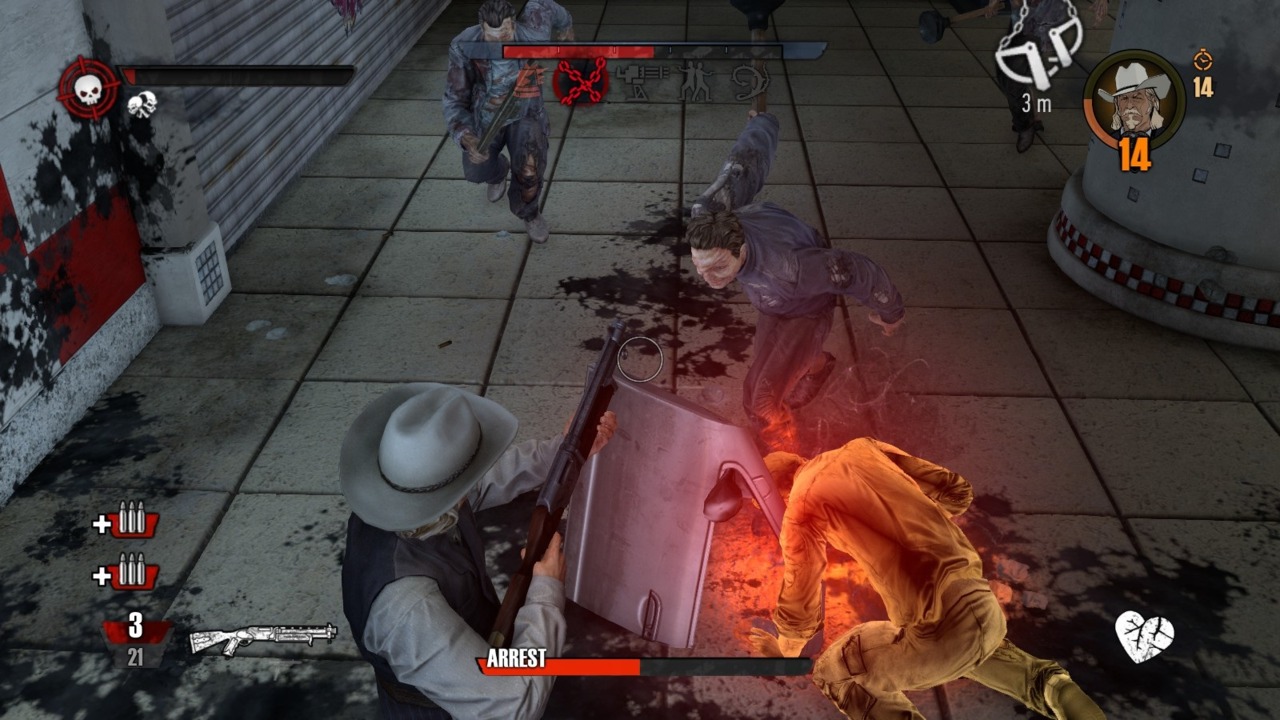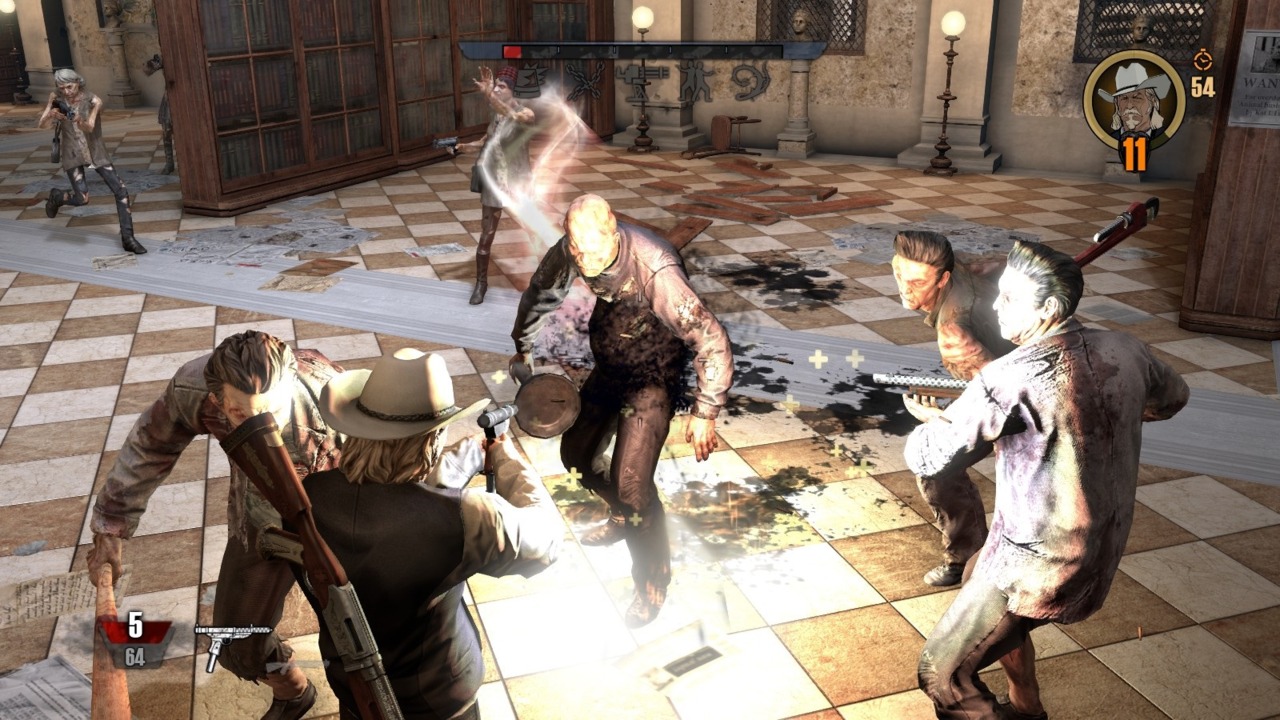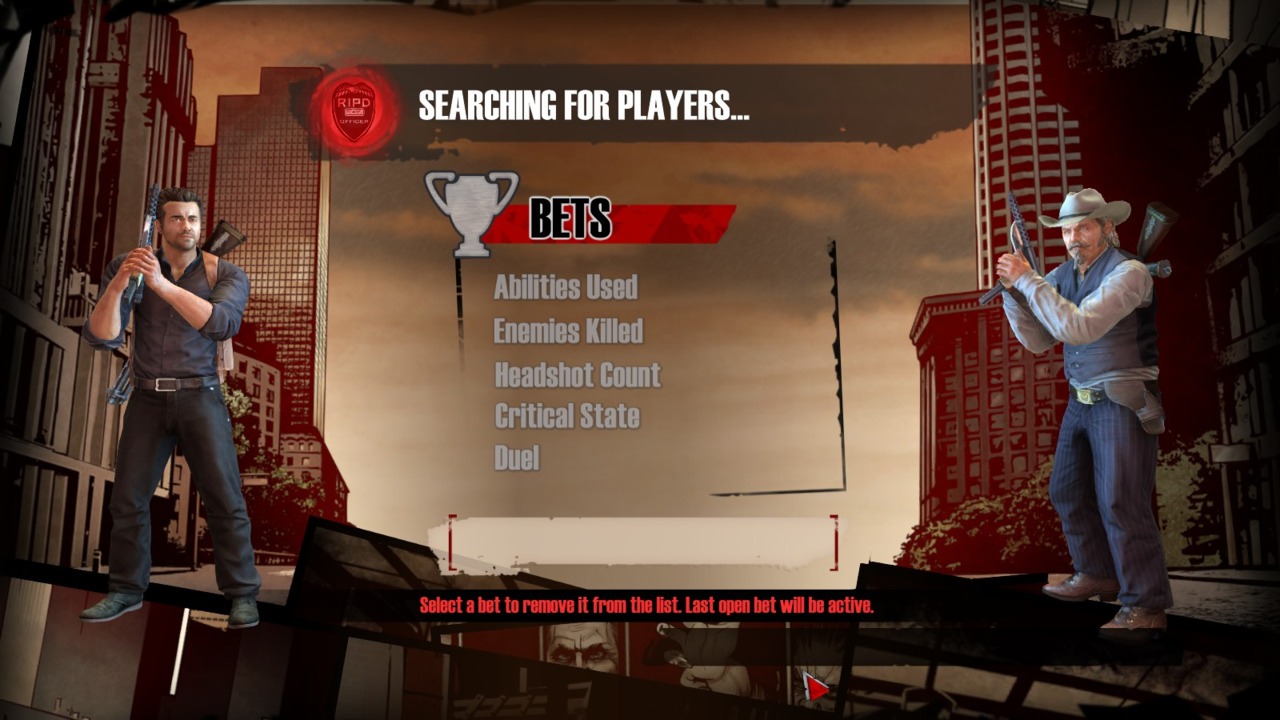R.I.P.D., much like the movie of the same name, is about the afterlife, and thus it's appropriate that playing it is like suffering through a little version of hell. That's not so much because the world around us turns out to be packed with criminals playing hooky from facing their divine retribution (though there is that), but rather because it's so tedious and unsatisfying to bring them to justice. With its humdrum gameplay and severely flawed mechanics, R.I.P.D. is a mess of cooperative shooter.

The word being passed around in critical circles is that the film starring Ryan Reynolds and Jeff Bridges is an uninspired knockoff of Men in Black and Ghostbusters, so it's perhaps only fitting that the game tie-in is an uninspired knockoff of developer Old School Games' own God Mode that debuted earlier this year. Much like God Mode, R.I.P.D.--that's Rest in Peace Department, by the way--doesn't waste any time on a story aside from a brief montage of illustrated stills at the beginning, making gunning down the hordes of bad guys you face feel entirely pointless.
That's partly because there's no campaign to speak of. At its core, R.I.P.D. is little more than a third-person cooperative shooter that has you fighting through seven horde mode maps and a final boss encounter with either of the film's two main characters. On the one hand, you have Jeff Bridges' Roy Pulsipher, an Old West lawman who's still stuck shooting baddies more than a century after his death; on the other, there's Reynolds' Nick Walker, whose model spends the entirety of R.I.P.D. looking as though he accidentally kicked a puppy.
Beyond Pulsipher's Stetson and Walker's perpetual wince, though, there's little to nothing else to give them personalities of their own. Pulsipher may have been in his prime in the days of Hickok and Earp, but he can handle a submachine gun just as well as Walker, and you can buy additional weapons like harpoons and bananas (not a typo) when you collect the bounty from completing a level. Provided, that is, you can even earn a bounty. Securing a bounty involves enduring all five rounds of each map, and you'll likely end up going it alone by making a custom map thanks to the ghost town servers on Steam. Even if you manage to find a working Quick Match, it's common for the hosts to jump ship long before the match ends.

Players' willingness to ditch a game in mid-match might have something to do with the dimwitted AI, which knows no other offensive tactic besides swarming you like paparazzi every time you turn a corner. The game is not even that pleasant to look at; with an arsenal of toilet plungers and discarded car doors complementing their tattered shirts and jeans, you could be forgiven for thinking Pulsipher and Walker had declared war on a community of squatters. At least there's some variety to spice things up in the form of healing deados, sniper deados, and the occasional giant, but that cast of a mere 12 or so thugs doesn't even come close to matching the variety in the superior but similarly flawed God Mode.
It doesn't help that they're a dull bunch, complete with pathfinding so terrible that these former thieves and murderers frequently get stuck on little obstacles like turnstile bars. Special abilities such as turrets and decoys allow you to overcome enemies when the swarm gets too intense, but it's not even fun to kill them in the first place. Hits barely register, and the aiming assist is all but required whether you're playing with a keyboard or a gamepad. Even then, the aiming reticle has an odd tendency not to center on targets but rather focus on a spot slightly to their side. Once you've endured enough of this, each stage culminates in the arrest of some nameless criminal, which involves standing around the defeated enemy much as if you were capturing a point. Don't have the patience for that? Just shoot him in the head for a smaller reward.
Is there any fun at all in R.I.P.D.? Only in the sense that misery loves company. If you and a friend were so unlucky as to pick up R.I.P.D. together, there's some generic shooter fun in clearing the levels as well as in performing simple acts of teamwork, like hitting one of the car-door-wielding deados from behind while your buddy distracts it. Elsewhere, random challenges, such as capturing two points within three minutes or picking up gold trinkets, at least give you something to strive for, as does a betting system that lets you predict how you'll score on goals like headshots and enemies killed.
But much like Pacific Rim earlier this month, R.I.P.D. serves to remind us why movie tie-ins get such a bad rap. Perhaps with more time and resources, Old School Games might have been able to turn R.I.P.D. into something that could have outlasted the film's theatrical run. But this effort is dead on arrival. It must be a feat to make a game so soulless when the entire concept centers on hunting down wayward souls, but R.I.P.D. somehow manages to pull it off. Rest in peace indeed.
